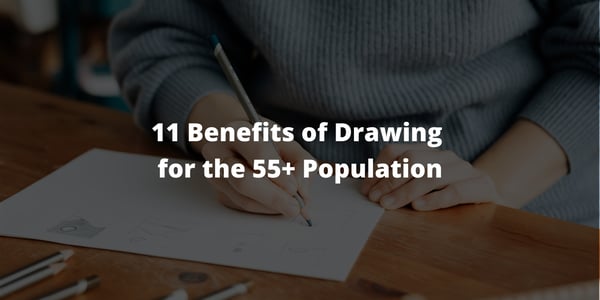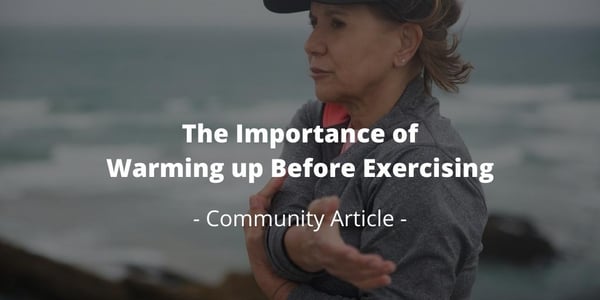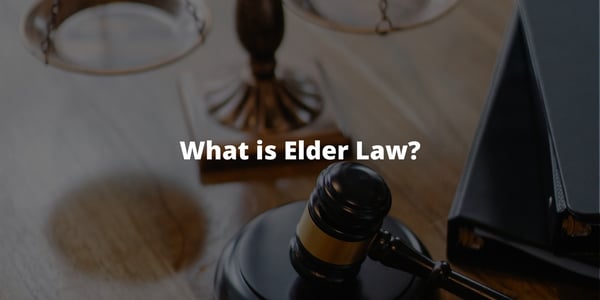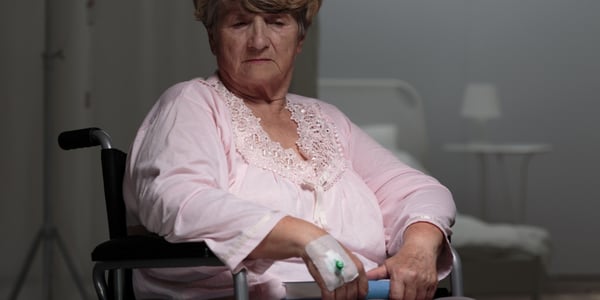Did you ever imagine that drawing could do wonders for your well-being?Drawing is not just an...
How to Recognize the Signs of Elder Abuse
Unfortunately, elder abuse is a pervasive problem in this day and age. According to the World Health Organization, it is estimated that 1 in 6 older people experience some form of abuse. Unfortunately, a lot of abuse goes unreported, so we don't really know the full extent of the problem. In this article, we'll take a look at some of the signs to watch out for to be able to recognize if someone you care about has been abused or neglected (and how you can help).
Watch for These Potential Signs of Elder Abuse
-
Unexplained Bruises and Injuries
Bruises and scratches, as well as broken bones, can be obvious signs of physical abuse. However, it's important to understand that injuries are common in older adults living with dementia or Alzheimer's disease. That being said, even if your loved one isn't suffering from these conditions, it is still a good idea to regularly perform a closer inspection into their safety at home.
-
Broken Eyeglasses
Broken eyeglasses are a telling sign of elder abuse. Glasses can be broken intentionally or accidentally. Either way, it can be a clear sign that your loved one's needs are being ignored, and he/she is not receiving the care expected. If your loved one's eyeglasses are broken, and they seem a bit shaken, then you should see if they have been abused or neglected.
-
Withdrawal from Friends and Family Members
When your loved one begins to pull away from friends and family members, it could be a sign of abuse. If they are suffering in silence while being abused by their caregiver, then this is often the only way for them to let you know about what's going on without actually saying anything.
-
Declining Mental Health or Memory Loss
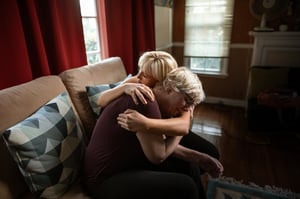 It can be challenging to tell if someone has been suffering from mental health decline due to elder abuse because many other factors play into memory loss. However, if an older adult starts losing interest in things that were once important to them, something might not be right. Also, watch out for evasive behavior when conversations turn towards personal matters. This could indicate some form of hidden abuse.
It can be challenging to tell if someone has been suffering from mental health decline due to elder abuse because many other factors play into memory loss. However, if an older adult starts losing interest in things that were once important to them, something might not be right. Also, watch out for evasive behavior when conversations turn towards personal matters. This could indicate some form of hidden abuse. -
Financial Abuse
It's common for abusers to take advantage of an older person by stealing their money or spending it on themselves. This is why you should keep an eye out if your loved one seems to have lost a lot of money recently, even though they are well provided for financially.
-
Making Up Unlikely Stories
When they are hesitant to tell how a particular injury or bruise occurred, it should raise a red flag. While it's possible they do not remember how a bruise occurred, they might be afraid of what will happen if they tell someone. Ask questions and make sure the stories check out. Your investigation could be incredibly worthwhile for your loved one who could be afraid to speak about an incident.
-
Unnecessary Prescriptions and Frequent Visits to Doctors
If your loved one is seeing a lot of medical professionals but doesn't seem sick enough for all the appointments, then it's possible that someone is using them for their money. This can also be another way abusers steal from older people. If you notice many prescriptions appearing in short periods of time, this could mean something fishy is going on.
-
Lack of Participation in Social Activities
If your loved one seems very withdrawn from society and has stopped taking part in hobbies that were once important to them, then it could indicate some kind of elder abuse.
-
Signs of Them Being Confined
If your loved one seems to have difficulty moving around or is being kept in one room most of the time, this might be a sign that something is wrong. Unfortunately, it's sometimes also common for abusers to keep their victims locked up. If you're suspecting some kind of confinement, it's essential not to confront the abuser without enlisting help first (from law enforcement or other professionals).
-
Poor Hygiene
One of the most obvious signs that your loved one is being abused is poor hygiene. They might not be taking a shower or brushing their teeth. If you're suspecting abuse, then this could also indicate physical neglect. Stay vigilant about what's going on around them, and don't hesitate to report any suspicions. If they are suffering from some type of elder abuse, it will only get worse over time before something can be done about it!
-
Weight Loss or Malnourishment
Older people suffering from some type of abuse are often malnourished and lose weight. This is because part of the abuser's plan to control their victim is depriving them of food. Or, they may be experiencing a lack of appetite as a symptom of anxiety or depression resulting from the abuse. So if you notice your loved one losing a lot of weight, this might be an indication that something isn't quite right.
-
Depression and Anxiety
 Dealing with abuse is very difficult for an older adult, which often leads to depression and anxiety. As a result, they might seem sad or act out of character. If you're not sure if your loved one is displaying signs of depression, check out our post to learn more about how to identify depression in older adults.
Dealing with abuse is very difficult for an older adult, which often leads to depression and anxiety. As a result, they might seem sad or act out of character. If you're not sure if your loved one is displaying signs of depression, check out our post to learn more about how to identify depression in older adults. -
Hesitation to Talk Freely
An older person who is being abused might be hesitant to talk freely about what's going on. This could indicate that they are afraid of the abuser. If your loved one seems to shy away from the topic of care or changes the subject when you bring it up, this is a possible warning sign.
These are just some signs that elders may be experiencing abuse and neglect. As we've mentioned earlier, elder mistreatment can be challenging to detect because many older adults aren't able to express themselves clearly due to advanced age or may be afraid or even embarrassed to do so. So it is important for their loved ones to pay attention and look out for these signs.
If you are concerned that your loved one is a victim of elder abuse, please contact your local police, Adult Protective Services, or Long-Term Care Ombudsman.
Related Content:



